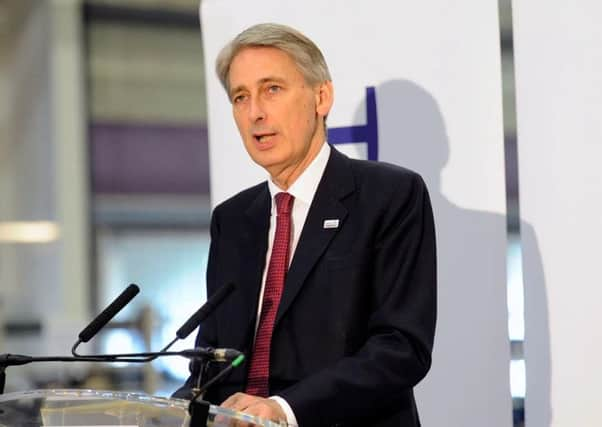Fylde business urges Chancellor to back small business


The country will be watching Philip Hammond carefully when he delivers the Government’s first major fiscal event since Brexit with businesses looking for help to get them through the uncertainty that has brought.
A cut in tax rates and red tape for SMEs, clarity on maintaining EU funded projects and efforts to show Britain is a good place to invest are priorities according to a raft of commerce groups.
Advertisement
Hide AdAdvertisement
Hide AdGary Lovatt, Blackpool-based Federation of Small Businesses’ regional chairman said:“The Autumn Statement is an opportunity for the new chancellor to make his mark and offer some positive news to an uncertain business community.
“We would like to see, and indeed have asked the chancellor for infrastructure spend to address historic under investment in local roads and deliver smaller scale projects.
“We also would like clarity on value for money domestic assessments for EU-funded projects supporting small business growth, until the UK leaves the EU.
“It is also important for the tax burden to be minimised including delaying mandatory quarterly tax reporting, realigning the business tax system to incentivise growth, employment and investment and specific help for the self-employed. Our members are also seeking reassurance that the chancellor will now reaffirm the Government’s commitment to permanently reduce Small Business Rate Relief, and that no additional tax burdens will be introduced. Small firms are already facing rising business costs, labour costs, dividend taxation, and pensions auto-enrolment.”
Advertisement
Hide AdAdvertisement
Hide AdWith the UK facing uncertainty in the wake of Brexit, specialist accountants Danbro of Lytham said the chancellor must recognise the importance of temporary workers to British industries and give them the freedom they need to grow our economy, scrapping previous rules that restrict the sector.
Chairman Damian Broughton is calling for a number of planned tax and legislation reforms to be axed such as restrictions on travel and subsistence claims, changes to intermediaries legislation (IR35) and a shift in liabilities for workers and employers.
He said: “This sector has been hit with a multitude of detrimental levies, rules and regulations in the past and this has placed a drag on one of our most critical tools for economic success.
“If Phillip Hammond changes key things like basic tax and VAT, he will bring the UK population along with him and he will be able steer us out of a potential downturn when the Brexit process gets under way. However, he can’t risk penalising entrepreneurs and that means we need to see a range of business-friendly policies that will bolster the economy ahead of a lengthy Brexit battle.”
Advertisement
Hide AdAdvertisement
Hide AdRachel Marsdin, tax partner at Blackpool-based accountancy and business advisory firm Moore and Smalley, said: “George Osborne’s tenure as chancellor was marked by policies to attract large business to invest in the UK.
“That needs to continue, but Philip Hammond also needs to do something to encourage small, owner-managed businesses which have been somewhat neglected during the Osborne years in my opinion.
“We need to encourage the grafters in our SME community to have the confidence to make moves on investment.
“If I were him, I would start with increasing the annual investment allowance for SMEs, which has shrunk back down to £200,000 after being as high as £500,000 in recent years. This will increase the tax relief available on big capital investments and give those businesses certainty. It would be good to see investment in plant and machinery removed from business rate calculations altogether, or perhaps some enhanced capital allowances for SME investment.
Advertisement
Hide AdAdvertisement
Hide Ad“Mr Hammond is known to be a cautious politician, but he has to be bold. We need bigger and better ideas to get these businesses investing for the long-term. Give us security and confidence to get growing.”
Steve Warren, North West Region Director of EEF, the manufacturers’ organisation, said the Government should prioritise productivity growth, boost investment in digital technologies and supports export.